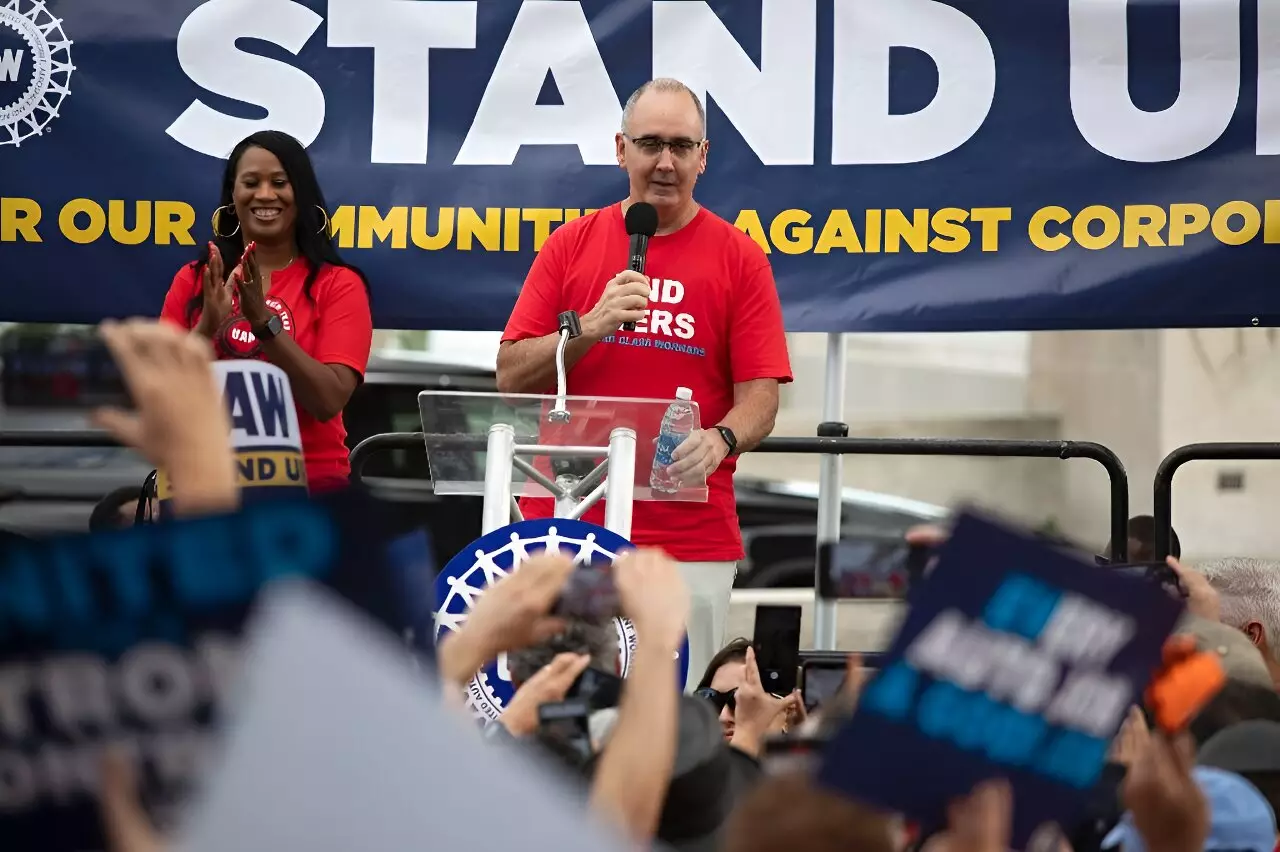

In a recent blow to the United Auto Workers’ campaign to organize the American South, the workers at Mercedes-Benz’s Alabama facilities have rejected a union drive. The results released by US authorities indicate that 2,642 workers voted against unionization, while 2,045 were in favor, resulting in a margin of 56 to 44 percent. Despite high hopes for a second victory following a successful union drive at Volkswagen in Tennessee, the UAW faced strong opposition at the Mercedes auto manufacturing plant and battery complex near Tuscaloosa.
Led by President Shawn Fain, the UAW encountered resistance not only from Mercedes itself but also from state and local officials who raised concerns about potential job losses and the impact on the local economy. Governor Kay Ivey of Alabama made it clear that the state was not welcoming to the UAW, drawing a stark contrast between Alabama and Michigan where unions have a stronger presence. Fain expressed disappointment in the result of the vote but vowed to continue fighting for workers’ rights in the South.
Union backers have complained that Mercedes engaged in a campaign of anti-union communications targeted at rank-and-file employees during mandatory meetings. Workers who supported unionization have filed unfair labor complaints with the National Labor Relations Board and with German officials, accusing the company of violating supply chain practices. The tactics employed by Mercedes, including the full-out anti-union campaign, have been criticized by experts as effective in dissuading workers from supporting unionization efforts.
The setback at Mercedes-Benz highlights the challenges faced by organized labor in the American South, a region known for its resistance to unions. The UAW’s recent successes in Detroit automakers have raised hopes for additional drives in the South at plants operated by major companies like Honda, Toyota, and BMW. Despite the defeat, Fain remains committed to pushing forward with unionization campaigns, emphasizing that justice in the workplace goes beyond a single vote or campaign.
The history of organized labor in the American South is fraught with tensions and opposition from political leaders who view unions as a threat to the region’s economic success. The UAW’s struggle to gain a foothold in the South reflects a broader challenge faced by unions in a region where anti-union sentiment runs deep. The recent defeat at Mercedes-Benz serves as a reminder of the uphill battle that union organizers face in gaining support from workers in a historically anti-union environment.
While the rejection of the union drive at Mercedes-Benz’s Alabama facilities is a setback for the UAW’s efforts to organize the American South, it is also a testament to the challenges and complexities of labor relations in the region. Despite this defeat, the UAW remains determined to continue its fight for workers’ rights and representation, underscoring the ongoing struggle for unionization in a region with a long history of anti-union sentiment.
In the world of pharmaceuticals, innovation often hinges on finding new compounds that can lead…
In the heart of the Amazon basin, drastic climate changes present an alarming reality that…
Air fryers have rapidly surged in popularity, captivating home cooks and culinary enthusiasts alike. When…
In an era where technology and social media reign, the importance of sleep often takes…
In an era where environmental consciousness is paramount, the maritime industry has long been scrutinized…
Radionuclides, often relegated to discussions surrounding nuclear energy and radioactive waste, have far-ranging implications for…
This website uses cookies.